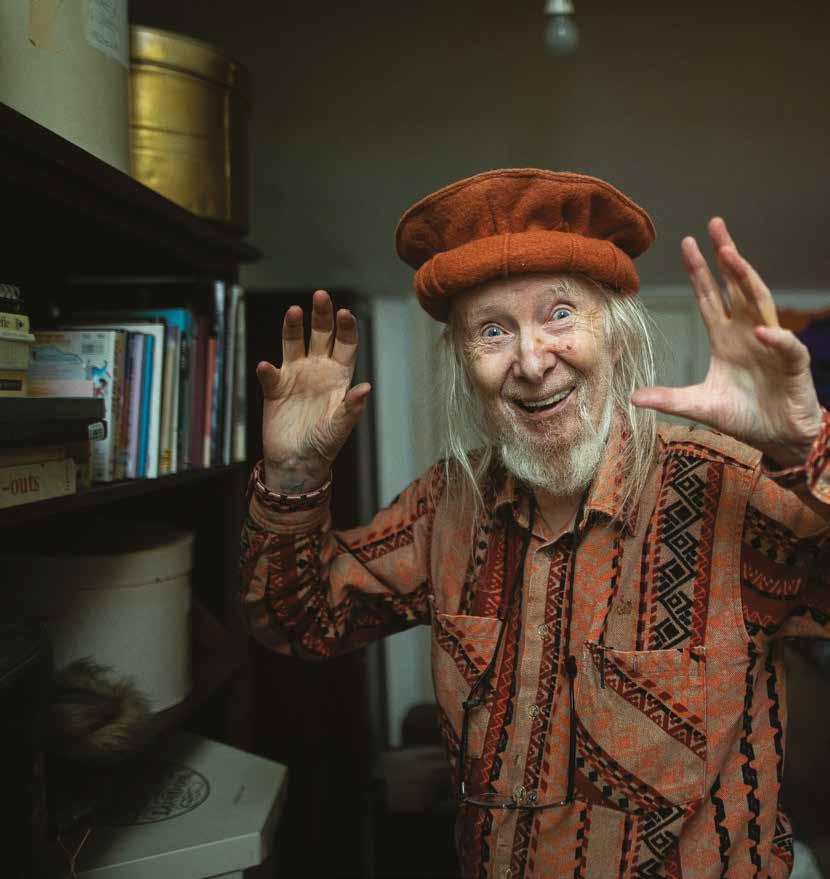
2 minute read
BILL’S STEPPING OUT
Bill’s a ballet dancer from the North East. He’s a one off. They could have made a film about him. We find out why, at 84, he’s polishing his tap shoes.

Bill Harpe
Mention the name Bill Harpe in any arts scene across the North West and there’ll be few who don’t have a memory or a tale to tell.
His story is as unconventional as the man himself. Born in a mining community in Darlington, he did ballet as a young boy, went to Cambridge on a scholarship, joined the Royal Air Force for National Service and was supported to train with the London Ballet.
Since then he’s worked worldwide, directing arts festivals in the UK and Zambia and in 1967 the opening ceremony of Liverpool’s metropolitan cathedral, including a choreographed mass. He’s still working hard, creating and directing new programmes at Liverpool’s Black -E community arts centre, his cultural ‘home’ since 1968.
I was able to use my experience as a ballet dancer to explain where the weaknesses were.

Bill’s also putting all his determination and zest into recovering from a stroke 18 months ago, which badly affected his left side. He’s ‘frustrated and angry’ at the restrictions it has placed on his ability to work, and with what he sees as system delays to treatment that may have speeded up his recovery.
The progress he’s made so far is, he says, down to his own determination and the support he’s had from Mersey Care community physiotherapist Amanda Gormley.

Amanda Gormley, community physiotherapist
“I was feeling disillusioned then Amanda came”, he told MC magazine. “I was able to use my experience as a ballet dancer to explain where the weaknesses were. She immediately knew what I needed and gave me good exercises to improve my posture. She’s an intelligent intuitive person.”
The admiration is mutual. Says Amanda: “When I met Bill he was struggling with fatigue and quite frustrated. When he told me his story I realised how important it was for him to get back to work.
“To the untrained eye there was not much to see but I could tell his left foot was dragging. We worked on a programme and he’s gone above and beyond what was needed. When the time came for him to be discharged he showed me his tap shoes and told me they were part of his plan for going back to work. I had to tell him to sit down and not overdo it!”
Bill’s master plan came from their sessions. “I started thinking what I could do to help myself and build on what Amanda had done for me. Stroke affects the brain and the body – I decided on chess for my brain and tap dancing for my body. I know getting back to the way things were may be a way off but I’ll keep going till I’m back at the Black-E…”










